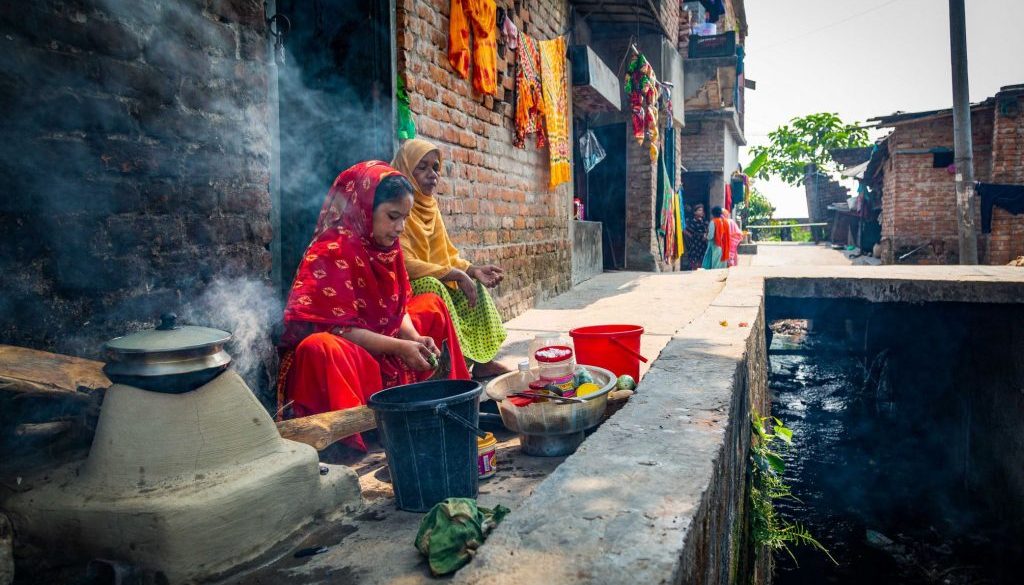What we learnt at ICUH 2023
Bachera Aktar, Abu Conteh, Surekha Garimella, Caroline Kabaria, Jiban Karki, Robinson Karuga, Blessing Mberu, Linet Otiso, Samuel Saidu, Inayat Singh Kakar, Rosie Steege, Hayley Stewart, Joe Taylor, Sia Tengbe and Neele Wiltgen Georgi report back on discussions from the International Conference on Urban Health.
Earlier this month team members from across ARISE traveled to Atlanta for the 19th annual International Conference on Urban Health. It was a whirlwind few days, meeting colleagues focusing on all different aspects of urban health and attending plenaries and panels that addressed a wide range of topics and issues. The team has put together a short round up of the key themes and discussions we found emerging over the conference, as a helpful reference and reminder of where the current focus is on urban health.
Community = Power
“Those closest to the problem are closest to the solution.” – Nathaniel Smith, Partnership for Southern Equity
Many sessions we attended spoke about the importance of consulting and engaging with communities – moving from an approach of doing things for people, to with people and by people. We need to not be afraid to share power, and instead “share the mic”. Speakers highlighted the fact that residents in disadvantaged and marginalised urban settings know what they want to change, and urged attendees to recognise that the role of organised community is fundamental to any public health action.
Jason Corburn from UC Berkeley spoke about the importance of bringing communities into the building and maintaining of green parks and spaces, and ensuring they are paid to do so. Many highlighted the fact that community-based activists were critical to community-led action for urban planning, which served the dual purpose of meeting the health and wellbeing needs of communities and tackling the issue of the marginalisation of existing communities through gentrification.
City planning
“We know how to build healthy spaces. We just do not do it for everyone who needs these health spaces.” – Gil Peñalosa
There was much discussion around urban planning, and the focus on how cities are built. Speakers impressed the importance of green and blue (rivers/waterways) for mental health and wellbeing, the importance of pavements which encourages walking, and the regreening roads which leads to reduced speeds. Panellists discussed how city planning and transport and construction/development industries are drivers of future urban health outcomes, which can lead to environmental justice.
It was also highlighted that urban planning need not be a responsive event (e.g. city sprawl), but instead can be proactive and long-term. And an emphasis was placed on ‘place-making’, an approach to shaping our environments to make them more comfortable. This process again should be community owned and driven.
Policy, governance and systems
“It’s wrong to think the system isn’t working, the system is working exactly how it’s set up to.” – Nathaniel Smith, Partnership for Southern Equity
Speakers highlighted that public policy is a reflection of the values that people have, and that policies relating to urban environments cannot be separated from work of social justice. Conversations emphasised the importance of multi-disciplinary/ cross sectoral partnerships. Bringing together those have a vested interest in this topic, but making sure to speak the language of each sector in order to tackle common problems – so framing issues as housing problems to those working in housing, but as a health issue to those working in health. Strategically, a whole government approach to issues surrounding urban health is needed, so good communication and engagement with those at local and national levels is key.
Contextual issues
“Why do we treat people and then send them back to the conditions that made them sick in the first place?” – Gerry Eijkemans, PAHO
“Communities do not have a transport problem on Monday, jobs problem of Tuesday. They happen at the same time. We cannot propose siloed solutions for intersectional problems.” – Nathaniel Smith, Partnerships for Southern Equity
Speakers across the conference spoke about the complexity of urban inequities, and how each society has complex layers of inequality that need to be uncovered. We need to breakdown the dichotomous definitions of urban formality versus urban informality, which gives one power over the other.
Speakers discussed how the Americas are the most inequitable, with structural racism in America as a critical social determinant of health for people of colour. Similar structural injustice can be translated into other contexts as structural neglect, especially in the case of urban informal settlements.
